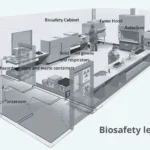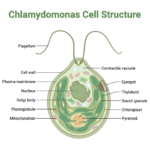Basic Microbiology 8 Views 1 Answers
An individual si infected with — i Intracellular bacteria and ii) Extracellular bacteria. Which kind(s) of immune response will be expected in each case?
An individual is infected with — i Intracellular bacteria and ii) Extracellular bacteria. Which kind(s) of immune response will be expected in each case?
Answered
For an individual infected with intracellular and extracellular bacteria, different types of immune responses are generally involved:
- Intracellular Bacteria:
- Cell-Mediated Immune Response: Intracellular bacteria reside inside host cells, making them less accessible to antibodies. The primary immune response involves cytotoxic T lymphocytes (CTLs) and helper T cells. Helper T cells, specifically Th1 cells, secrete cytokines like interferon-gamma (IFN-γ) that activate macrophages to enhance their ability to kill intracellular pathogens. CTLs can directly kill infected cells.
- Macrophage Activation: Macrophages play a crucial role by engulfing and destroying the bacteria within the cell. The activation of macrophages is often enhanced by Th1 cytokines.
- Extracellular Bacteria:
- Humoral Immune Response: Extracellular bacteria are typically targeted by antibodies produced by B cells. These antibodies can neutralize the bacteria, opsonize them for phagocytosis by macrophages, and activate the complement system to aid in their destruction.
- Complement System Activation: The complement system helps to identify and eliminate extracellular bacteria through processes like opsonization and lysis.
Did this page help you?




